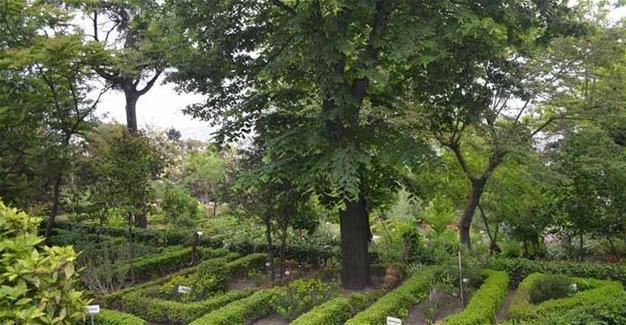Allocation of botanical garden to top religious body stirs debate
ISTANBUL
 The allocation of Istanbul University’s Botanical Garden to the Religious Affairs Directorate (Diyanet) in 2015 for the use of the Istanbul Mufti’s Office has stirred a debate in Turkey, with the main opposition Republican People’s Party (CHP) blasting the move.
The allocation of Istanbul University’s Botanical Garden to the Religious Affairs Directorate (Diyanet) in 2015 for the use of the Istanbul Mufti’s Office has stirred a debate in Turkey, with the main opposition Republican People’s Party (CHP) blasting the move. The move only recently came to light after an application last month by Fazıl Uğur Soylu, a member of Fatih district’s municipal legislative body from the CHP, to the Prime Ministry Coordination Center (BİMER), daily Birgün reported on Aug. 1.
The answer given to Soylu from the real estate directorate of the Topkapı area in the Fatih district said that with consent received from Istanbul University in 2015 some 14,878 square meters of land previously assigned by the Treasury for the use of the university was no longer allocated to the university.
After the moving of the building of the Botanical Department [located on 14,878 square meters of land] to the newly built Biology Department building, the land would be allocated to the Diyanet for the use of mufti services, the directorate added.
“In the [botanical] garden there are nine greenhouses registered as International Botanical Gardens, as well as living fossil plants. In the garden, Turkey’s first Herbarium [classified library of dried plants] and almost 40,000 plant records exist,” Soylu told daily Birgün.
“The garden consists of plants collected from nature until today in difficult conditions. It serves as a practical field of application for students. It is well-known that the transportation of these plants and their taking root again is not possible, even if there is money,” he added.
“For what purpose will the Mufti’s Office use this huge piece of land anyway?” Soylu said.
The Istanbul University Botanical Garden was established near Süleymaniye Mosque in 1933 by Alfred Heilbronn and Leo Brauner, two Jewish professors who escaped Nazi Germany to come to Turkey upon the invitation of Mustafa Kemal Atatürk, the founder of the modern Republic of Turkey.
The botanical garden includes more than 3,000 different plant species and 1,000 different tree species, which function as a record of all the species found in Anatolia.
In 1995, Istanbul University’s Alfred Heilbronn Botanical Garden was declared as a natural site and the plants inside it were registered as natural assets that were to be protected. In 2013, however, claims emerged that the Religious Affairs Directorate had been demanding the garden from the university.
















